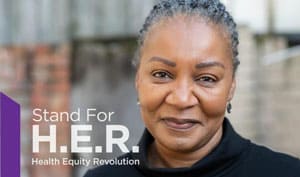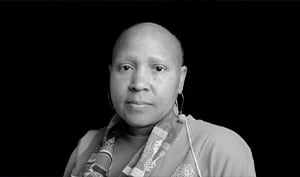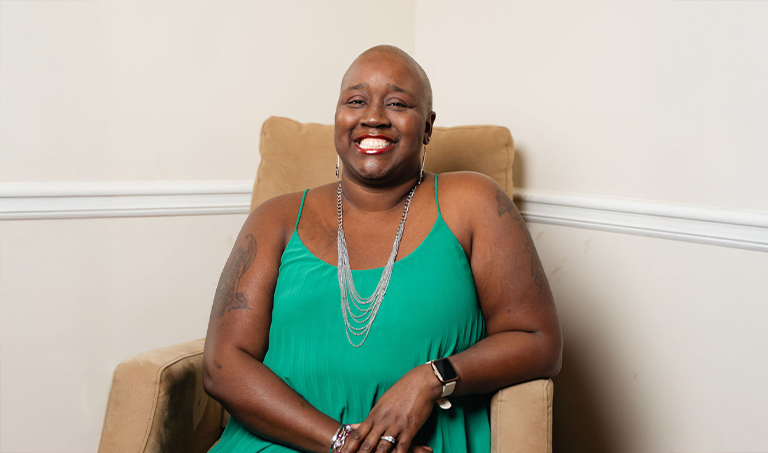Join the Komen
Health Equity Revolution
Join the Komen Health Equity Revolution
Inequities in Breast Cancer Outcomes are Unacceptable.
Hispanic/Latina women are more likely to be diagnosed later.
Uninsured women have lower screening rates.
Lesbian and bisexual women experience barriers to care due to discrimination.
Too many people are dying from breast cancer simply because of who they are or where they live. At Komen, we’re leading a Health Equity Revolution to change that — by breaking down barriers to care, listening to the communities most impacted and making sure everyone feels empowered and has the knowledge and support to protect their breast health.
Your voice matters. Your health matters.
Find the resources, support and community you need — because everyone deserves the chance to survive and thrive. Start by reaching out to the Komen Patient Care Center.
Monday – Thursday: 9 a.m. – 7 p.m. ET
Friday: 9 a.m. – 6 p.m. ET
Se habla español
Email: helpline@komen.org
Listen to Community Voices
Real People. Real Stories.
Explore stories from survivors, thrivers, caregivers, providers and advocates all sharing how they navigate their experiences with breast cancer.
Find Resources That Reflect You
Community Resources
Feel empowered with Komen breast health education and support tailored to the communities we serve.
Become a Revolutionary
Take Action for Health Equity
Join our movement to close the breast cancer gap and save lives.

Become an Advocacy Insider
Get the latest policy updates, event alerts and ways to take action for the breast cancer community.
LEARN MORE >

ShareForCures
Join ShareForCures, Komen’s people-powered breast cancer research registry to help find cures faster.
LEARN MORE >

Become an Advocate in Science
Help shape breast cancer research by bringing the patient voice to scientific discovery.
LEARN MORE >

Donate or Start a Fundraiser
Every dollar helps advance breast cancer care and research. Start fundraising or make a gift today.
LEARN MORE >
Help discover cures to breast cancer, faster.
Your breast cancer information is as unique as you are. When combined with thousands of other ShareForCures members, you provide scientists with a more diverse set of data to make new discoveries, faster.














